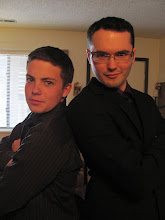My research has been currently focused on past revolutions (both successes and failures). My previous blog post for
Mediated Cultures is my actual KYHOI proposal. I intend to further this study with the book resources that I am currently reading. Ultimately this is an update on my research and further support of my thesis.
Recently within class we have been discussing the Twitter revolution in Iran. Neda's death on camera was the initial spark for the fire of the online movement. This first video acts as a story for the actual events that took place.
And this is the real event (Be Aware: Video is blocked due to youtube flagging of inappropriate content. You will have to provide your age to view the video.)
The
2009-2o10 Iran revolution movement provoked global awareness. Twitter became the tool for revolution. Yet, it is important to discuss what the tool was actually used for.
Jared Keller wrote an article stating, "But it was the critical role of Twitter as a lightning rod for international attention that established it as a tool for political communication rather than outright organization. Iran's post-election unrest was the micro-blogging service's baptism by fire as a means to observe, report, and record, real-time, the unfolding of a crisis." Keller is developing an interesting insight, and it challenges the
online-offline dynamic. Is the realm of online truly a depiction of the offline movement?
Even Twitter's actual role was questioned by
Charles Krauthammer, "Twitter cannot stop a bullet. There was a lot of romantic outpouring here thinking that Facebook is going to stop Revolutionary Guards. It doesn't. Thuggery, a determined regime that is oppressive, that will shoot, almost always wins." This challenges the uprisings that we are seeing today, and it provokes detailed exploration of social media and its use in social movements. Social media today has become much more dynamic. The composition of video/text/audio/mapping/real-time/etc. creates a rich equation for social movement. Yet, I argue that the focus on a leader (person or idea) establishes a focus for change.
Without a focus... are the social movements of today a result of chaos? Can a structure change if it is tossed and turned? Or does change arise from finding a weak beam within the structure and targeting a collapse (a focused change)?
